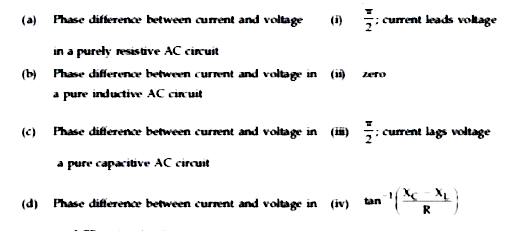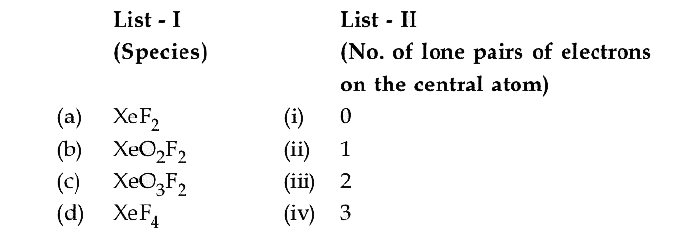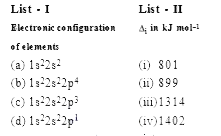Choose the most appropriate answer.
A tadpole develops into an adult frog by the process of
(i) fertilization
(ii) metamorphosis
(iii) embedding
(iv) budding
Fertlization
Metamorphosis
Embedding
Budding
The correct Answer is:B
To answer the question about how a tadpole develops into an adult frog, we can follow these steps:
1. Understanding the Life Cycle of Frogs:
- Frogs undergo a complex life cycle that includes several stages: egg, tadpole (larval stage), and adult frog.
2. Identifying the Tadpole Stage:
- The tadpole is the larval form of the frog, which is typically aquatic and has a tail, resembling a fish.
3. Defining Metamorphosis:
- Metamorphosis is the biological process through which an organism transforms from one developmental stage to another, involving significant morphological changes. In frogs, this includes the transition from a tadpole to an adult frog.
4. Evaluating the Options:
- (i) Fertilization: This is the process of combining male and female gametes to form a zygote. It does not describe the transformation of a tadpole into a frog.
- (ii) Metamorphosis: This is the correct process that describes the transformation from a tadpole to an adult frog.
- (iii) Embedding: This term is not relevant to the development stages of frogs.
- (iv) Budding: This is a form of asexual reproduction and does not apply to the life cycle of frogs.
5. Conclusion:
- Based on the definitions and understanding of the life cycle, the most appropriate answer is (ii) metamorphosis.
Final Answer:
The tadpole develops into an adult frog by the process of (ii) metamorphosis.
---
- Frogs undergo a complex life cycle that includes several stages: egg, tadpole (larval stage), and adult frog.
- The tadpole is the larval form of the frog, which is typically aquatic and has a tail, resembling a fish.
- Metamorphosis is the biological process through which an organism transforms from one developmental stage to another, involving significant morphological changes. In frogs, this includes the transition from a tadpole to an adult frog.
- (i) Fertilization: This is the process of combining male and female gametes to form a zygote. It does not describe the transformation of a tadpole into a frog.
- (ii) Metamorphosis: This is the correct process that describes the transformation from a tadpole to an adult frog.
- (iii) Embedding: This term is not relevant to the development stages of frogs.
- (iv) Budding: This is a form of asexual reproduction and does not apply to the life cycle of frogs.
- Based on the definitions and understanding of the life cycle, the most appropriate answer is (ii) metamorphosis.
The tadpole develops into an adult frog by the process of (ii) metamorphosis.
Topper's Solved these Questions
Similar Questions
Given below are events that lead to pregnancy and development of embryo
(i) Fertilization of egg
(ii) Maturation of egg
(iii) Release of egg
(iv) Embedding of embryo in thickened uterine wall.
Which of the following options gives the correct order of sequence in which they occur?
View SolutionDistinguish between training and development on the basis of
(i) level of persons involved
(ii) objective , (iii) duration
(iv) Meaning
View Solution
Knowledge Check
Choose the most appropriate answer.
The number of nuclei present in a zygote is
(i) none
(ii) one
(iii) two
(iv) fourANoneBoneCtwoDfourChoose the most appropriate answer.
Internal fertilization occurs
(i) in female body.
(ii) outside female body.
(iii) in male body
(iv) outside male body.Ain female bodyBoutside female body.Cin male bodyDoutside male body.Which of the following process/processes release heat ?
(i) condensation (ii) vaporisation (iii) freezing (iv) meltingAonly (i)Bonly (iv)C(i) and (iii)D(ii) and (iv)
Match List-I with List -II

Choose the most appropriate answer from the options given below:
View SolutionMatch List-I with List-II :

Choose the most appropriate answer from the options given below :
View SolutionWhich of the following features are considered to be the primitive features in the evolutionary hierarchy?
(i) Internal fertilization
(ii) Coelom developed from mesoderm
(iii) Presence of mesoderm layer
(iv) Hermaphrodite nature.
View SolutionChoose the most appropriate options.
Arrange the following in the decreasing order of basic character .
I. p-toluidine
II. N,N-dimethyl-p-toluidine
III. p-nitroaniline
IV. Aniline
View SolutionMatch List - I with List- II

Choose the most appropriate answer from the options given below -
View Solution
